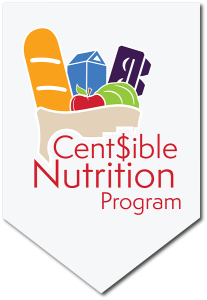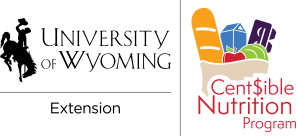Third Annual Potato Harvest Yields 13,000 Pounds of Potatoes
Over 13,000 pounds of potatoes were harvested in the 3rd annual potato harvest at the James C. Hageman Sustainable Agriculture Research and Extension Center (SAREC) on October 7th. The potatoes were donated to the Food Bank of Wyoming through a partnership with the University of Wyoming Extension programs SAREC and the Cent$ible Nutrition Program (CNP). This effort aims to connect Wyoming grown produce to families facing food insecurity in the state.
“This partnership has been a huge success,” said Mind Meuli, CNP director. “It was a natural connection between SAREC and the Cent$ible Nutrition Program. This endeavor has sparked connections with the other UW Experiment Stations and we are going to continue collaborations that support supplying Wyoming produced foods to those in need.”
The potatoes are grown as part of UW outreach efforts at SAREC. After SAREC and CNP connected in 2019, the first potato harvest happened in 2021, donating nearly 6,500 pounds of potatoes. In 2022, 10,920 pounds of potatoes were donated, and this year, 13,565 pounds were donated from the harvest.
“The amount of potatoes that have been harvested and distributed statewide has been phenomenal,” Meuli said. “Each year the collaboration and yield gets better and better. It is a win-win for everyone.”
Potatoes are available at no cost to Food Bank of Wyoming partners in the state and have already started making their way across Wyoming.
“The local fresh potatoes were such a surprise in this month’s food box,” said Neal O, a patron at the Pine Bluffs Senior Center. “I appreciate the extra assistance our local and state agencies give.”
“Potatoes are a staple in our pantry, so having this large donation of them will go such a long way in helping support the students, staff, and faculty that come to us,” adds Jess Dooley, Food Security Coordinator at UW. “We’re so appreciative to everyone who contributed to the potato harvest every year!”
CNP is working with local food pantries to connect patrons to recipes and resources for using and storing potatoes safely.
“This continued and expanding partnership is so important to food insecurity efforts across the state,” said Rachel Bailey, director of Food Bank of Wyoming. “These Wyoming grown potatoes are a nutritious, fresh option for Food Bank of Wyoming’s community Hunger Relief Partners to distribute to our neighbors experiencing food insecurity. It’s wonderful to be able to make local produce available to our partners paired with recipes and resources from CNP.”
Growing and harvesting a crop of this size requires hard work and commitment, which was led this year by Brian Lee, a research scientist at SAREC, said Dr. Steve Paisley, Director of SAREC. Paisley and Lee took a 16 hour trip to pick up the seed potatoes from Center, CO for this year’s crop, and Lee took the lead once back at SAREC.
“In addition to making the trip to pick up seed potatoes, Brian was directly involved in planting the potatoes, topping the potatoes, coordinating with local food pantries for donations, working with the Wyoming Women’s Center in Lusk to coordinate help and contacting local 4-H groups for volunteer opportunities,” said Paisley. “Brian was SAREC’s lead in preparation for Saturday’s harvest, and he had his entire family helping with the dig.”
In addition to the Lee family and the staff at SAREC, volunteers from the Wyoming Women’s Center; the University of Wyoming Cent$ible Nutrition Program and Extension; Graduate students from UW’s Family Consumer Sciences Department and Chemistry Department; students from the Community Programs in Agriculture class at UW; Platte County 4H; and staff from the Food Bank of Wyoming helped harvest the potatoes.
“Thanks to the volunteers that came and a special thanks to Kelly Greenwald for coordinating supplies and to our SAREC crew who planted, hilled, and harvested the crop,” said Lee. “Without support from our farm crew this effort wouldn’t happen. The University of Wyoming SAREC is proud to produce the crop and host the potato harvest for the Food Bank of Wyoming.”

